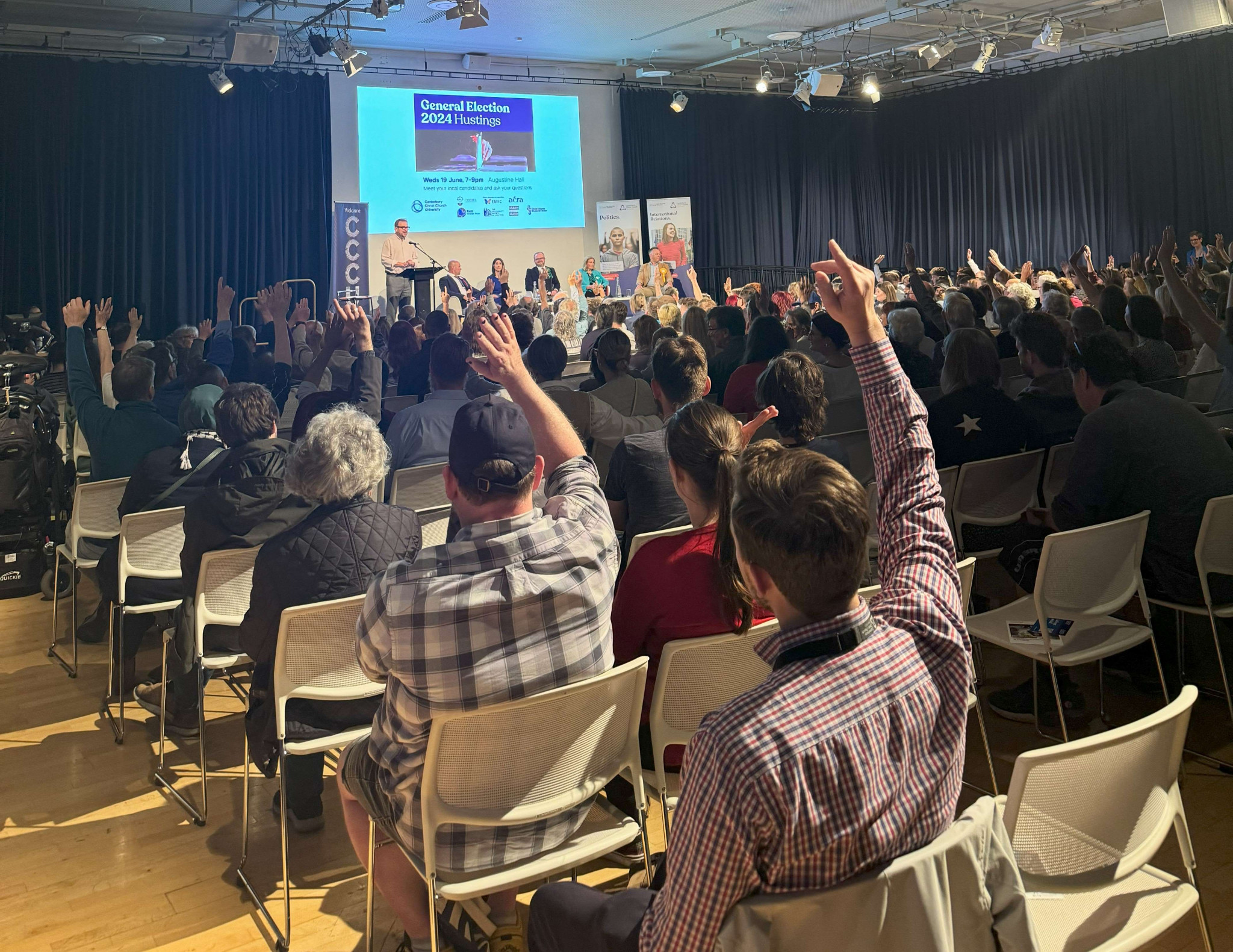We were proud to host students from The Langton, Canterbury, at our pre-Hustings General Election Schools Workshop. Following this, we are thrilled that a number of students sent us their reflections on the key issues that have arisen during this month’s General Election. We are privileged to publish this blog, in which a Year 12 student from The Langton reflects on the importance of scrutiny in politics. Noting that it is easy to persuade, with eye-catching, popular policies, or confidence and charisma, the author questions if presenting wish-lists without examination leads to informed democratic choice.
Before the debate had even started, characteristics could be observed of each individual candidate and it was easy to gain information and pre-emptive assumptions could be made.
One such example of this was that the member for the Social Democrat party hadn’t brought a manifesto or any other files to read off, so I assumed that he had enough confidence in himself to know important parts of his manifesto and to be a persuasive speaker, which he was.
The opposite situation had also seen itself to be true in cases, where the people who had brought more to read off for themselves seemed less confident. I found this to be true of the Reform UK and Conservative party candidates especially, where they had a large stack of files each and came off as more timid and insubstantial.
During the debates, the presumptions that I made stayed more or less true in regard to the SDP member, but it was interesting to see the Liberal Democrat and Green Party candidates, who, as a whole, received the most cheers as a whole in matters of policy and response to audience-proposed questions, proposing and believing in, to a large extent, in what they’re saying.
Whilst noting this, I paid critical attention to those two candidates and noted flaws which didn’t seem to be noticed by many of the audience. One such example is when the Green Party candidate had proposed a minimum wage of £15 an hour, without any economical backup to impose this, the SDP member did try to challenge and interrogate the Green party candidate on this as he too noticed the flaw in that proposition, but the nature and form of the Hustings hadn’t allowed for any cross-scrutiny; ultimately leaving that proposition to seem to be possible and true and potentially falsely gaining popularity for the Green Party.
The apparent controversy in Rosie Duffield’s lack of appearance should be taken more fairly, as she had made an attempt to discuss political matters with the students during the workshop event, and she answered with honesty and patience.
The main issue at hand was however, her lack of attendance at the hustings, which was critical as her performance in competition with the other candidates may be deemed necessary in voting behaviour. As for the reason for her lack of attendance, it was under the threat of violent actions, and evidently so, she couldn’t attend to mitigate any risk of those allegations being true and having anything happen to her. Some people may see this situation as her using a valid crutch to not attend the debate to avoid cross scrutiny, especially with the situation of Labour’s support for the arms race in Israel as well as other major issues.
Duffield’s lack of participation had very major impacts though, the lack of cross-scrutiny was detrimental as well there being no opportunity for Rosie to voice her individual opinion on certain matters also present proving to be a setback too. The setbacks grow even larger as Duffield is the current MP and she has served as the MP for a long time as well.
 Politics
Politics Laura Cashman
Laura Cashman 1125
1125


